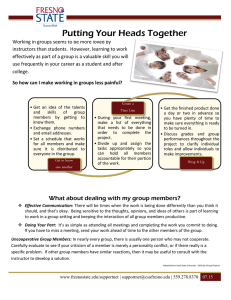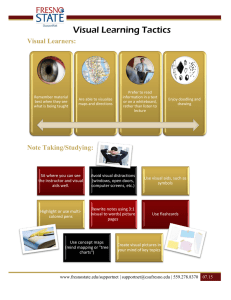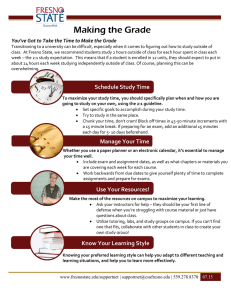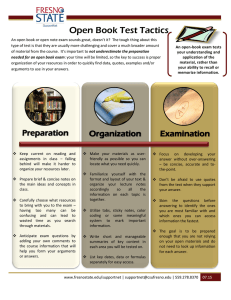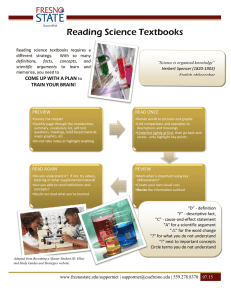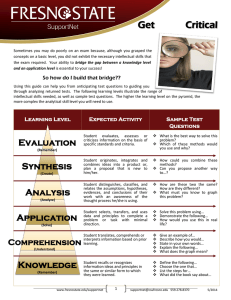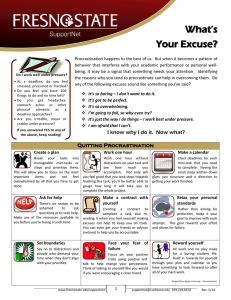Hear What?!
advertisement
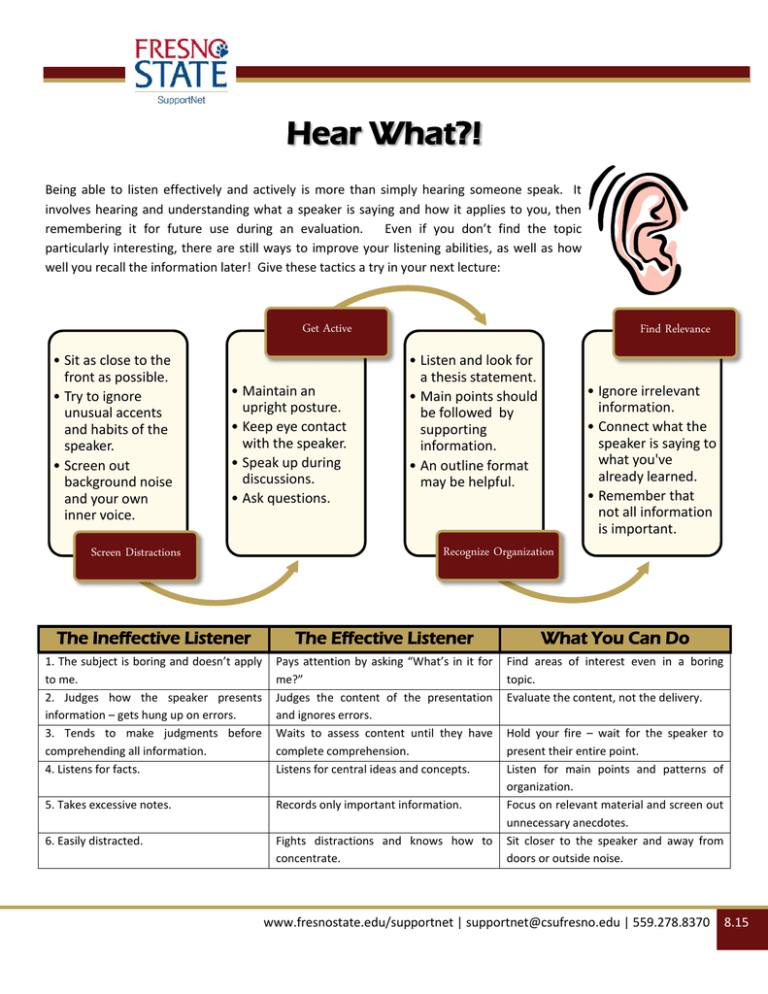
Hear What?! Being able to listen effectively and actively is more than simply hearing someone speak. It involves hearing and understanding what a speaker is saying and how it applies to you, then remembering it for future use during an evaluation. Even if you don’t find the topic particularly interesting, there are still ways to improve your listening abilities, as well as how well you recall the information later! Give these tactics a try in your next lecture: Get Active • Sit as close to the front as possible. • Try to ignore unusual accents and habits of the speaker. • Screen out background noise and your own inner voice. • Maintain an upright posture. • Keep eye contact with the speaker. • Speak up during discussions. • Ask questions. Screen Distractions Find Relevance • Listen and look for a thesis statement. • Main points should be followed by supporting information. • An outline format may be helpful. • Ignore irrelevant information. • Connect what the speaker is saying to what you've already learned. • Remember that not all information is important. Recognize Organization The Ineffective Listener The Effective Listener What You Can Do 1. The subject is boring and doesn’t apply to me. 2. Judges how the speaker presents information – gets hung up on errors. 3. Tends to make judgments before comprehending all information. 4. Listens for facts. Pays attention by asking “What’s in it for me?” Judges the content of the presentation and ignores errors. Waits to assess content until they have complete comprehension. Listens for central ideas and concepts. Find areas of interest even in a boring topic. Evaluate the content, not the delivery. 5. Takes excessive notes. Records only important information. 6. Easily distracted. Fights distractions and knows how to concentrate. Hold your fire – wait for the speaker to present their entire point. Listen for main points and patterns of organization. Focus on relevant material and screen out unnecessary anecdotes. Sit closer to the speaker and away from doors or outside noise. www.fresnostate.edu/supportnet | supportnet@csufresno.edu | 559.278.8370 8.15 7. Passive – shows little interest and acts bored. Active – stays involved with the speaker throughout the lecture. Work on active listening. Adapted from University of Texas – Listening Skills for Lectures and from Bone, Diane. The Business of Listening. Los Altos, CA: Crisp Publications, Inc., 1998. www.fresnostate.edu/supportnet | supportnet@csufresno.edu | 559.278.8370 8.15
